Filter by
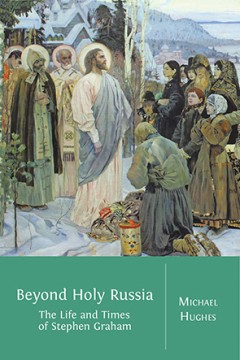
Beyond holy Russia: the life and times of Stephen Graham
This biography examines the long life of the traveller and author Stephen Graham. Graham walked across large parts of the Tsarist Empire in the years before 1917, describing his adventures in a series of books and articles that helped to shape attitudes towards Russia in Britain and the United States. In later years he travelled widely across Europe and North America, meeting some of the best k…
- Edition
- -
- ISBN/ISSN
- 9781783740147
- Collation
- x, 355 p. : ill. : ind. ; 24 cm
- Series Title
- -
- Call Number
- 914.703
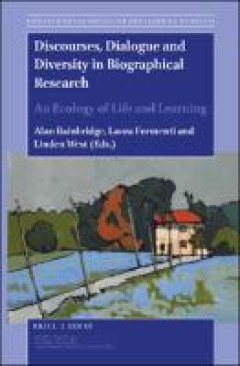
Discourses, dialogue and diversity in biographical research : an ecology of l…
This book explores how narratives are deeply embodied, engaging heart, soul, as well as mind, through varying adult learner perspectives. Biographical research is not an isolated, individual, solipsistic endeavor but shaped by larger ecological interactions – in families, schools, universities, communities, societies, and networks – that can create or destroy hope. Telling or listening to l…
- Edition
- -
- ISBN/ISSN
- 9789004465916
- Collation
- x, 226 p
- Series Title
- -
- Call Number
- 920.0072 BAI d
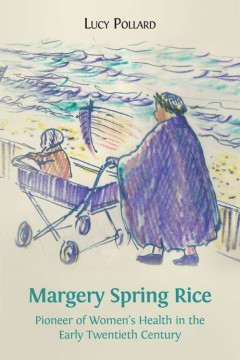
Margery spring rice: pioneer of women’s health in the early twentieth century
This book vividly presents the story of Margery Spring Rice, an instrumental figure in the movements of women’s health and family planning in the first half of the twentieth century. Margery Spring Rice, née Garrett, was born into a family of formidable female trailblazers – niece of physician and suffragist Elizabeth Garrett Anderson, and of Millicent Fawcett, a leading suffragist and cam…
- Edition
- -
- ISBN/ISSN
- 9781783748839
- Collation
- xiv, 196 p. : ill. : ind. ; 24 cm
- Series Title
- -
- Call Number
- 305.42092 POL m
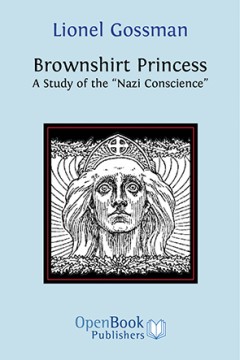
Brownshirt princess: a study of the 'nazi conscience'
Princess Marie Adelheid of Lippe-Biesterfeld was a rebellious young writer who became a fervent Nazi. Heinrich Vogeler was a well-regarded artist who was to join the German Communist Party. Ludwig Roselius was a successful businessman who had made a fortune from his invention of decaffeinated coffee. What was it about the revolutionary climate following World War I that induced three such diffe…
- Edition
- -
- ISBN/ISSN
- 9781906924089
- Collation
- 202 p. : ill. : ind. ; 24 cm
- Series Title
- -
- Call Number
- 831.912 GOS b

Mary Warnock : ethics, education and public policy in post-war Britain
This biography illuminates the life and thought of Baroness Mary Warnock, whose active years spanned the second half of the twentieth century, a period during which opportunities for middle-class women rapidly and vastly improved. Warnock was described as ‘probably the most celebrated philosopher in Britain.’ She began her career as an Oxford University philosophy don and went on to beco…
- Edition
- -
- ISBN/ISSN
- 9781800643406
- Collation
- viii, 350 p
- Series Title
- -
- Call Number
- 941.082092 GRA m
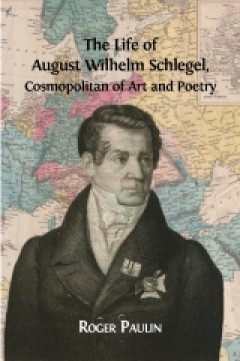
The life of August Wilhelm Schlegel : cosmopolitan of art and poetry
This is the first full-scale biography, in any language, of a towering figure in German and European Romanticism: August Wilhelm Schlegel whose life, 1767 to 1845, coincided with its inexorable rise. As poet, translator, critic, and oriental scholar, Schlegel's extraordinarily diverse interests and writings left a vast intellectual legacy, making him a foundational figure in several branches of…
- Edition
- -
- ISBN/ISSN
- 9781909254978
- Collation
- xiv, 662p. : ill.
- Series Title
- -
- Call Number
- 838.609 PAU t
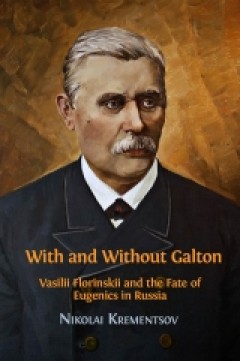
With and without Galton: Vasilii Florinskii and the fate of eugenics in Russia
In 1865, British polymath Francis Galton published his initial thoughts about the scientific field that would become ‘eugenics.’ The same year, Russian physician Vasilii Florinskii addressed similar issues in a sizeable treatise, entitled Human Perfection and Degeneration. Initially unheralded, Florinskii’s book would go on to have a remarkable afterlife in twentieth- and twenty-first-cen…
- Edition
- -
- ISBN/ISSN
- 9781783745135
- Collation
- xxv, 666 p. : ill. : ind. ; 24 cm
- Series Title
- -
- Call Number
- 363.92 KRE w
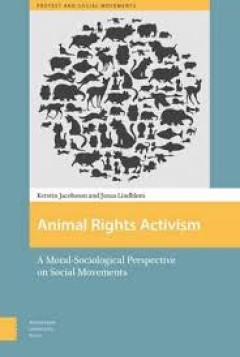
Animal rights activism: a moral sociological perspective on social movements
We’re in an era of ever increasing attention to animal rights, and activism around the issue is growing more widespread and prominent. In this volume, Kerstin Jacobsson and Jonas Lindblom use the animal rights movement in Sweden to offer the first analysis of social movements through the lens of Emile Durkheim’s sociology of morality. By positing social movements as essentially a moral phen…
- Edition
- -
- ISBN/ISSN
- 9789089647641
- Collation
- 145p.: ill.
- Series Title
- -
- Call Number
- 303.484 JAC a
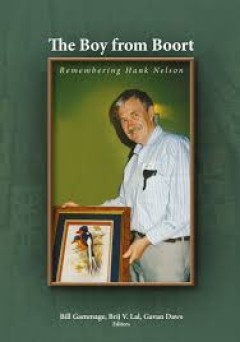
The Boy from Boort
Hank Nelson was an academic, film-maker, teacher, graduate supervisor and university administrator. His career at The Australian National University (ANU) spanned almost 40 years of notable accomplishment in expanding and deepening our understanding of the history and politics of Papua New Guinea, the experience of Australian soldiers at war, bush schools and much else. This book is a highly re…
- Edition
- -
- ISBN/ISSN
- 9781925021646
- Collation
- x, 224p.: ill.
- Series Title
- -
- Call Number
- 994.007202 DAV b
Dictionary of world biography
Jones, Barry Owen (1932- ). Australian politician, writer and lawyer, born in Geelong. Educated at Melbourne University, he was a public servant, high school teacher, television and radio performer, university lecturer and lawyer before serving as a Labor MP in the Victorian Parliament 1972-77 and the Australian House of Representatives 1977-98. He took a leading role in reviving the Australian…
- Edition
- -
- ISBN/ISSN
- 9781922144492
- Collation
- xvi, 918p.
- Series Title
- -
- Call Number
- 920.02 JON d
 Computer Science, Information & General Works
Computer Science, Information & General Works  Philosophy & Psychology
Philosophy & Psychology  Religion
Religion  Social Sciences
Social Sciences  Language
Language  Pure Science
Pure Science  Applied Sciences
Applied Sciences  Art & Recreation
Art & Recreation  Literature
Literature  History & Geography
History & Geography